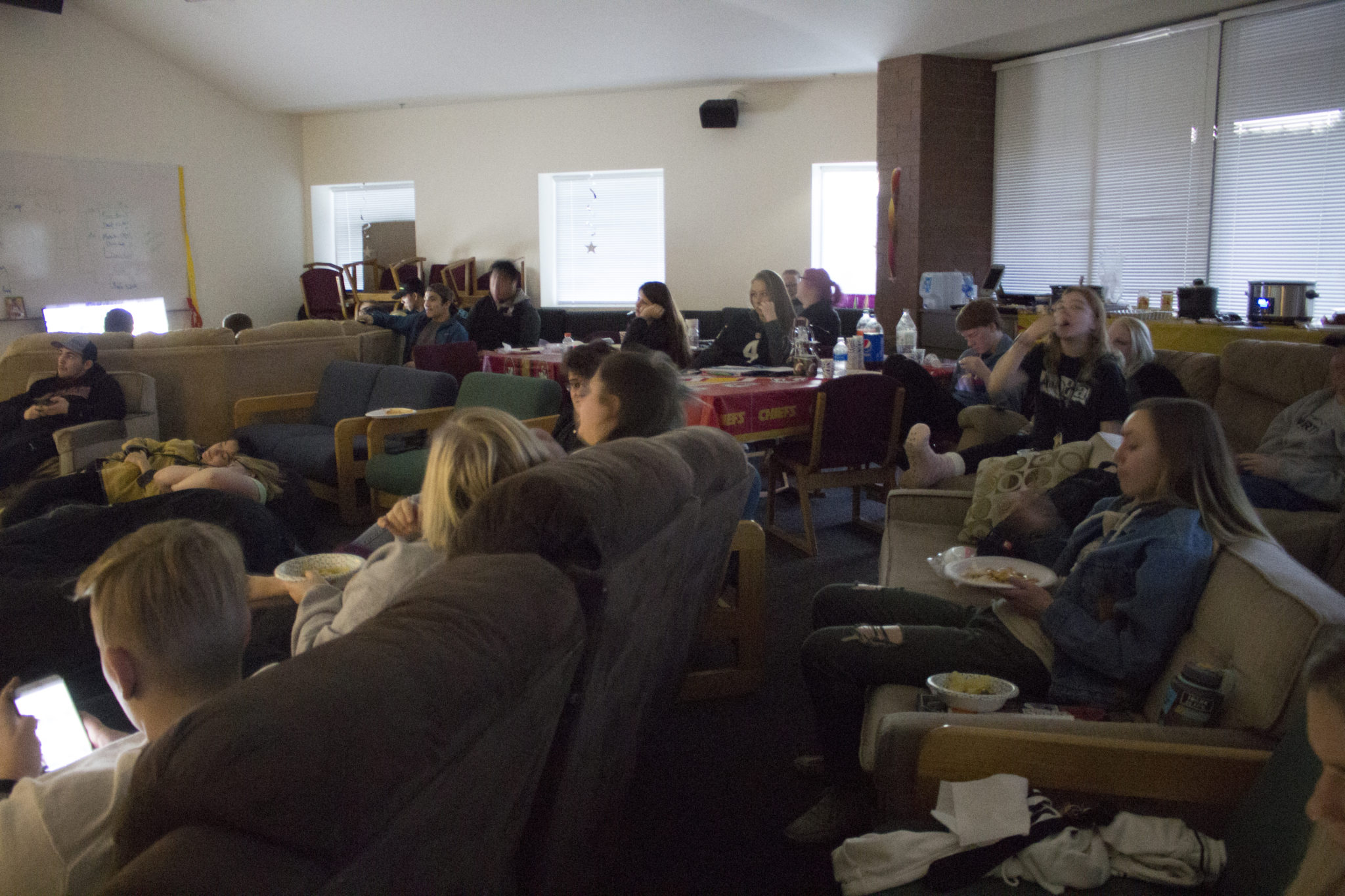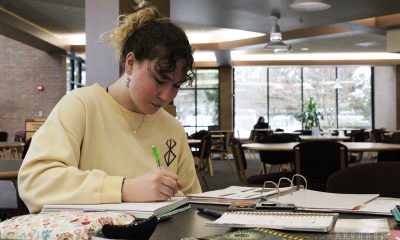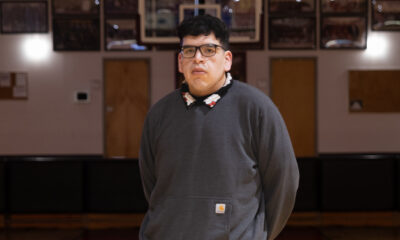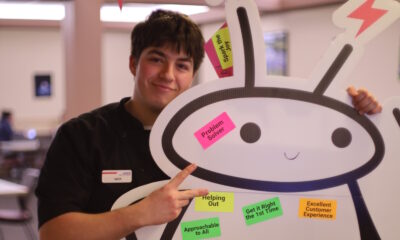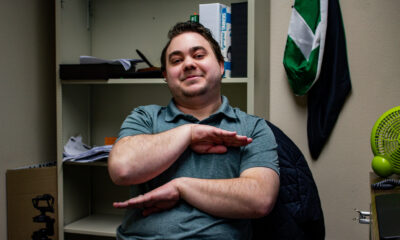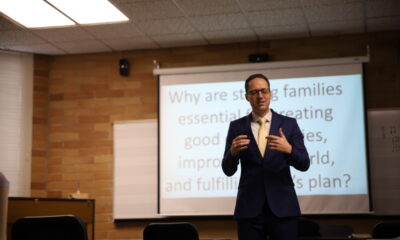Features
Saying Goodbye: Residents and their Experiences With Moving out of the dorms
COVID-19 brought many unexpected changes to the world, to the United States and to Idaho. By mid-March, all 50 states had reported cases of COVID. For some of the students living in the North Idaho College Residence Hall, this time came with difficult decisions on the future.
NIC closed down campus on March 16th and March 17th to prepare to transition to distant learning or online instruction. In the Residence Hall, staff began to take precautions, such as not permitting guests into the building. During the second week of March, staff in the residence hall began to highly encourage students to leave the dorms for the rest of the semester if they had the ability to do. By Friday, March 20th, many students had already checked out of the hall, leaving behind empty rooms.

Jestine Lackner poses for her ASNIC portrait. Lackner was a resident of NIC’s residence hall before the pandemic hit Idaho.
“Moving back home came a lot quicker than I thought,” said Jestine Lacker, the new Vice President of ASNIC and a first year buisness student. “It was quite stressful to pack up all my things from my room but the RA’s did their best to ease the process. The hardest thing was saying goodbye to all the wonderful people I had met while staying in the dorms. A lot of great memories were made there.”
While some students lived with their parents or friends in nearby towns, other students had to move to further way parts of Idaho.
“Moving back to Boise was really rough because I had to leave my friends and the city I really love,” said Samantha Stringam, a first year art student. “I had to try to fit into a routine with my family that I wasn’t used to anymore. That was the hardest part, I think.”
Despite in-class instruction being out of the question, classes were still held online for NIC students. Students who left the hall are still able to attend their classes from their homes or temporary dwellings. Professors and students are now communicating over email and Zoom meetings.
“Honestly not much has changed, other than I can’t go to my teachers in person and ask them stuff, but emails are nice to use and have around,” said Noah Gray, a first year criminal justice student who resided in the halls.
Due to the ongoing changes being made in many NIC students’ lives, NIC professors have had to adapt to their teaching style.
“The sudden move-out made it harder to focus on class work as my teachers continued to follow their syllabus,” said Lackner. “Many of them were understanding and loosened their schedule which really helped out some of us students.”
With schoolwork being done online at home, other NIC-related operations were presented with challenges on how to move forward. The ASNIC Student Government elections were still being held during the lockdown.
“I was running for Vice President during the time which as you can imagine made it difficult to campaign,” Lackner said.
NIC hosted a multitude of other events, including live Zoom events to help connect students with services and Q&As. “Even during the school shutdown the current student government was able to continue meeting over zoom and helping the students of NIC,” said Lackner.
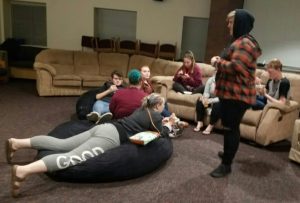
Residents share ice cream with one another. Gatherings like this were common in the Residence Hall before COVID-19 spread across the US.
Outside of college-related activities, some students were faced with challenges regarding physical and mental health due to the stress of losing housing and stability.
“These months have definitely proved some challenges for me. Not only did I lose my housing, but I lost my on campus job as well,” said Cadence Knepper, a first year student studying music. “I’ve definitely felt a decrease in my mental health since leaving, and I heavily relied on student services for mental health resources.”
ASNIC and NIC’s services have come together to help the students who have struggled during quarantine.
“We used our funds to contribute to the fund set up for students that needed financial help during the coronavirus pandemic,” said Lackner. “Not only did we support students directly through the funds, but my fellow senators, Abbey Rode and Emily Parson, created a resolution to continue paying student workers during the school closure. Even during these uncertain times, we were able to find alternatives and continue serving the student body away from campus.”
With the pandemic still underway, the college has been taking steps to prepare for the future. NIC is planning on following to work through Stage Three of the Idaho Rebounds plan. However, the future is still uncertain concerning the outbreak, and plans are open for re-evaluation.
“It sucks, but I’m not the only one going through this right now. A lot of my friends are dealing with the same issues,” said Knepper.
Jaye Hanselmann-Cox is an English and Communications student at NIC. She lives on-campus in the Residence Hall and loves interacting with her fellow students. In her free time, she writes sci-fi stories, draws digital cell-shaded art, and takes walks through the area.


